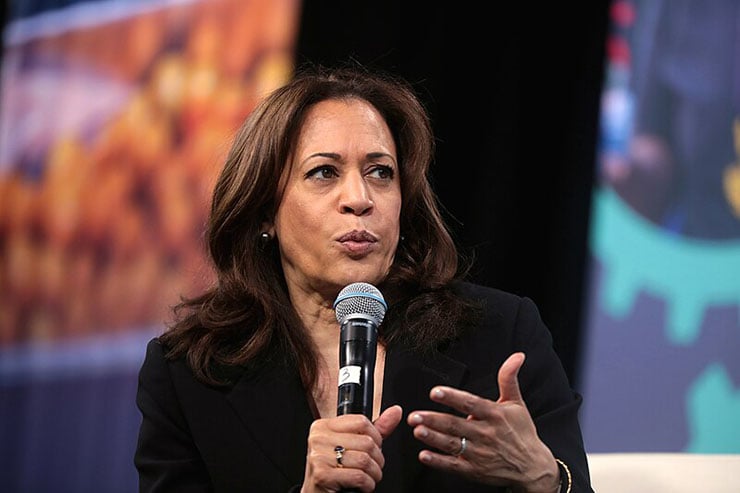With his presidency ending in a few weeks, Joe Biden’s legacy is only getting messier.
For many Democrats, he’s the man to blame for returning Donald Trump to the White House. If only Biden hadn’t selfishly run for reelection, the story goes, Kamala Harris would have had time to mount a better campaign—or maybe the party could have had a proper primary contest to find somebody, anybody, stronger than Biden or Harris.
The trouble with that theory is that Democrats haven’t won a presidential election without Biden on the ticket since 1996. Perhaps Barack Obama didn’t really need Biden as his running mate in 2008 and 2012; yet he needed someone for the No. 2 slot, and he evidently thought Biden the best thing available.
Democrats at the time should have pondered what that said about their talent pool. If they’d done so, they might have avoided the mistake that really set them up to lose this year—a mistake named Kamala Harris.
Elite Democrats knew perfectly well Biden was already showing his age, then 77, when he won the 2020 nomination, but at the height of COVID lockdowns, his lack of cogency and energy wouldn’t be noticed on the campaign trail—because there wouldn’t be a campaign trail. If Biden was the best the party could field at the ticket’s top, though, what was left below him?
By making Biden his veep, Obama had missed the chance to elevate a leader from his own generation. And Hillary Clinton, hell-bent on having the White House for herself, sucked all the air out of the 2016 primaries, leaving only enough oxygen for Bernie Sanders to challenge her from the left—which the then-75-year-old Vermont democratic socialist did surprisingly well.
Senior Democrats in effect prevented the next generation of leadership from being born—perhaps a fitting thing for a party so fiercely dedicated to abortion. What they had in lieu of fresh presidential material was identity politics.
So, fully aware Biden wasn’t fit to be a two-term president, Democrats accepted Harris as his running mate. Her qualification as Biden’s heir apparent wasn’t that she was popular with voters: On the contrary, she never made it to the first primary in her bid for the 2020 nomination, so pathetic were her polls.
Nor did Harris represent, like Sanders, an ideological force within the party; her opportunism was already transparent long before she turned repudiating her own words and past policies into the hallmark of her ’24 campaign. What argued for making her Biden’s running mate was simply her race and sex.
After all, the central message of Clinton’s campaign four years earlier had been that a woman deserved to be president. How could a party that ran on that not put any woman on its ticket next time? Yet it was also the year of George Floyd, and the party of Black Lives Matter couldn’t afford not to take color into consideration as well. Harris wasn’t popular, she wasn’t principled, but she was ambitious—and she ticked the right boxes.
Yet when a party selects candidates this way, it can’t be surprised that it loses, especially after Clinton had already proved identity politics wouldn’t beat Trump. Elite Democrats may blame Biden now, but the truth is they knew all about his condition and still preferred to have him run again rather than risk the party’s fortunes on Harris.
There was no one else: The choice was Biden or Harris, and until his debate meltdown—and for some time afterward, in fact—Democratic insiders saw Biden as obviously the stronger candidate. The party sealed its fate in 2020 when it elevated Harris for reasons having nothing to do with electability.
Yet Democrats put their philosophy to the test: If race and gender preferences are needed in higher education and corporate America to right the wrongs of racism and sexism, isn’t it all the more important those wrongs be righted with preferences at the highest level, that of presidential politics?
But trying to do that landed Democrats with a substitute for Biden who couldn’t win, even with the media branding her opponent an outright fascist. Harris’ campaign has revealed its internal polling never showed her ahead.
Biden, Harris, Clinton and Obama led Democrats to a dead end. To escape, the party will have to rethink its identity politics—but given Trump’s gains with black men and Latinos, Democrats may fear any retreat from affirmative action will unravel their already fraying coalition.
By rejecting Harris and electing Trump, however, the nation’s voters—of both sexes and all colors—sent Democrats a clear message. The question is whether they’re willing to hear it.
COPYRIGHT 2024 CREATORS.COM

Leave a Reply